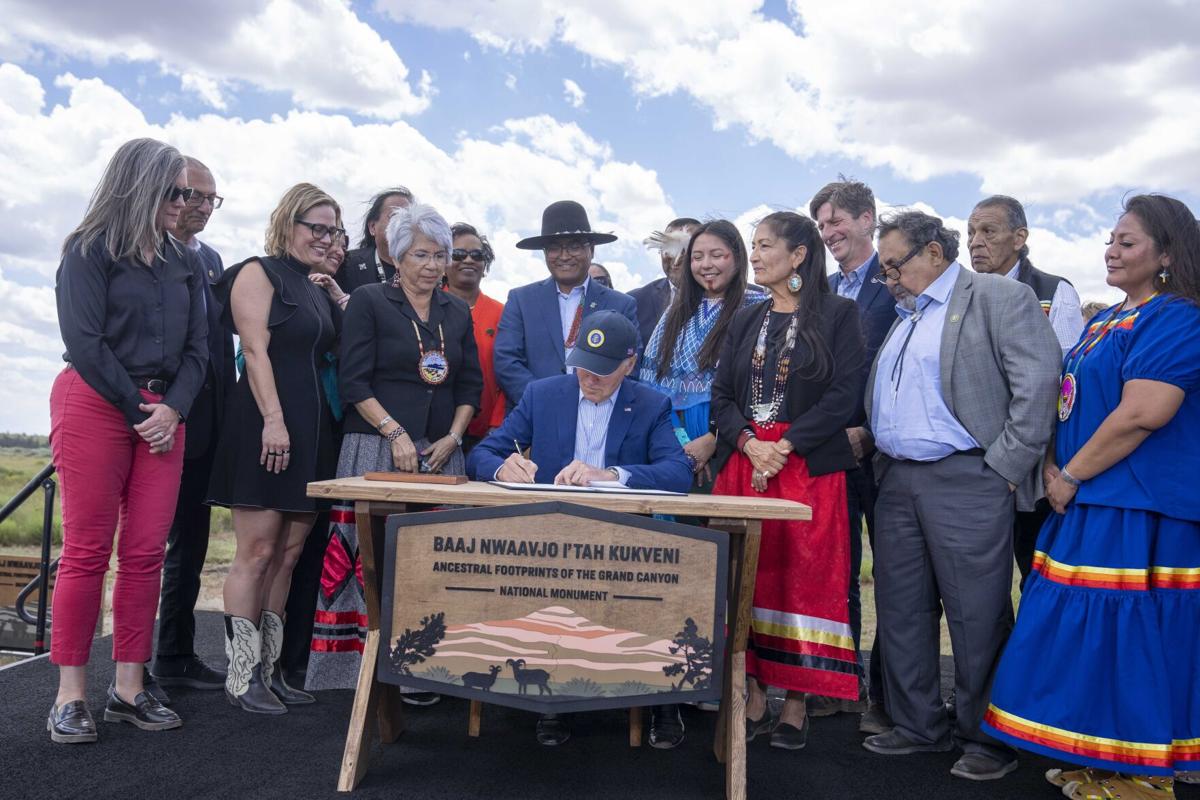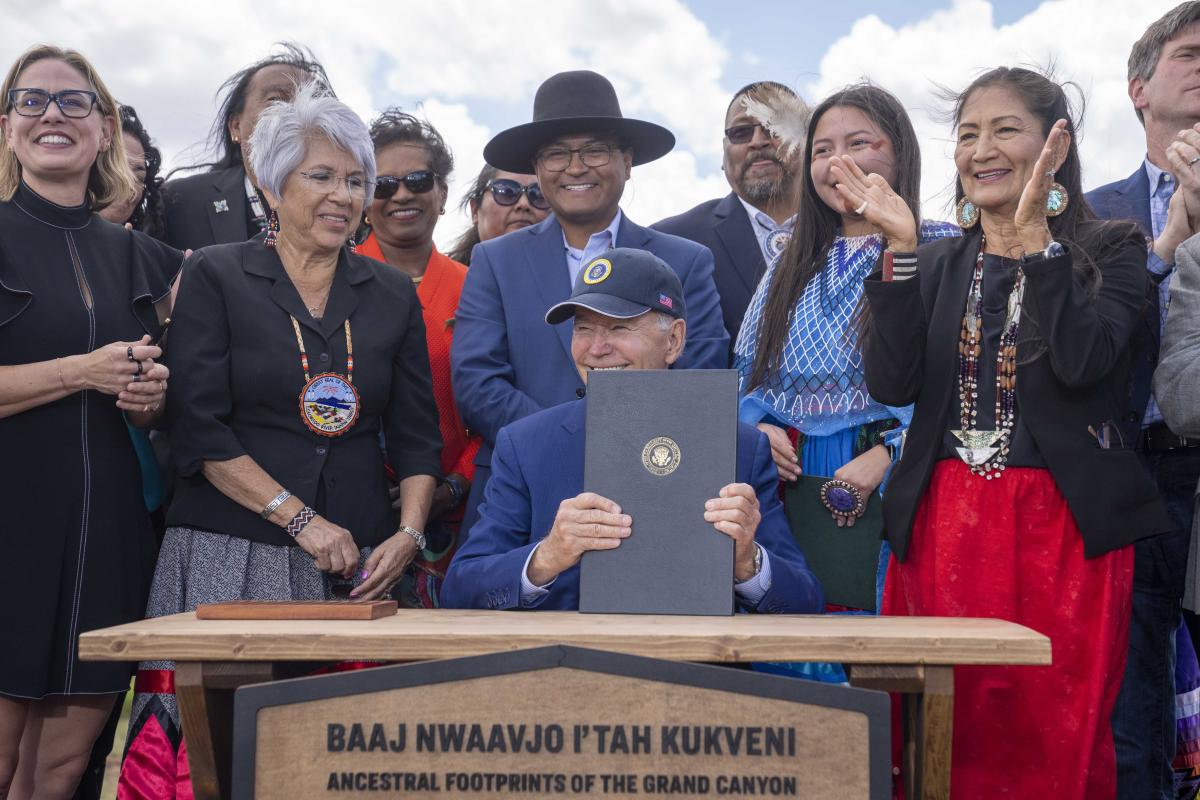President Joe Biden flashed a smile as he penned his signature on a proclamation, marking the birth of the Baaj Nwaavjo I’Tah Kukveni National Monument on August 8, 2023, at the Red Butte Airfield in Tusayan, Arizona. Little did he know, this act of preservation would spark a legal dispute.
Fast forward to February 12, 2024, and the top two Republicans of the Arizona Legislature, Senate President Warren Petersen and House Speaker Ben Toma, were lodging a lawsuit against President Biden.
Their bone of contention? They argued that Biden’s decision to create the monument, nestled just outside the Grand Canyon National Park, overstepped his legal bounds.
Their claim rested on the assertion that Biden’s use of the 1906 Antiquities Act, a law empowering presidents to safeguard historically or culturally significant sites, was stretched beyond its intended scope.

In their legal challenge, Petersen and Toma contended that the designation of the new monument was not merely about preserving historical or scientific artifacts.
They argued that Biden’s move failed to adhere to the Act’s stipulation of confining monument sizes to the minimum necessary for proper care and management of the protected objects.
Spanning 1,562 square miles (4,046 square kilometers), the Baaj Nwaavjo I’tah Kukveni monument represents a victory for Native American tribes and environmentalists who had harbored this vision for decades.
However, opposition loomed from Republican lawmakers and the uranium mining industry operating in the vicinity. They touted the economic advantages of mining activities in the region while positing it as a matter of national security.
Arizona Senate President Petersen minced no words, branding Biden’s move as disingenuous. He argued that the intention wasn’t genuine artifact protection but rather a broader agenda aimed at halting local land uses critical for energy independence, food supply, and economic robustness.
As the legal drama unfolds, the White House and the U.S. Department of the Interior opted to remain tight-lipped on the matter.
Joining the fray, Mohave County, alongside the communities of Colorado City and Fredonia, entered the legal arena against the Biden administration, adding more weight to the challenge.
The lawsuit projected potential adverse impacts on tax revenue and land values, citing reduced mining activities and land-use restrictions. The ripple effects, it warned, could extend to State Trust Land, a vital source of income for Arizona’s public schools and other beneficiaries.
Adding complexity to the situation, concerns over water contamination prompted the Interior Department to impose a 20-year moratorium on new mining claims around the national park back in 2012.
Despite no operational uranium mines in Arizona, the specter of the Pinyon Plain Mine’s development looms. Additionally, existing claims, though grandfathered in, raise questions about future mining prospects in the area.
Interestingly, the legal battleground isn’t unfamiliar to President Biden. A federal judge in Utah had recently dismissed a lawsuit contesting Biden’s restoration of two national monuments in the state, Bears Ears, and Grand Staircase-Escalante.
In that instance, the judge affirmed Biden’s authority in issuing proclamations to restore the monuments, both sacred to many Native Americans, which had been downsized during the tenure of former President Donald Trump.























